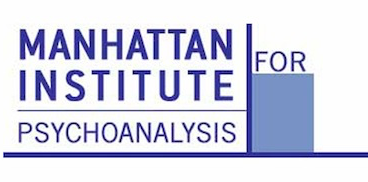Podcasts
The Institute’s Licensure Qualifying Program in Psychoanalysis is a five-year course of study open to professionals holding a masters’ level or higher degree from a university program registered with the New York State Education Department. The LQP offers professionals who are not licensed in psychiatry, psychology, or social work the core training of the Certificate Program in Psychoanalysis augmented by additional course work and clinical experience that prepare the LQP candidate to apply for licensure as a New York State Licensed Psychoanalyst (LP). The program is registered by the New York State Education Department as providing licensure eligible training that meets the educational requirements for obtaining the LP.
The LQP requires incoming candidates to enroll in a foundational first year of study that is meant to provide a foray into the following: the history of psychoanalytic ideas; fundamentals of psychiatric and psychoanalytic assessment and case formulation; the diverse schools of thought in psychoanalytic theory; conceptual underpinnings and principles of psychiatric and psychoanalytic diagnosis and convergences and divergences among these ways of diagnosing; the unique tradition of research in psychoanalysis and the ways that research can help inform clinical practice; mini-courses on essentials of substance use and abuse and aspects of psychopharmacology. For specific descriptions of courses in the foundational year, please click here.
At the end of the Foundational Year, a separate admissions process will take place to determine readiness to continue in the Licensure Qualifying Program. This will require a written statement by the candidate and a meeting with the Training Committee and the Directors of the Licensure Qualifying Program. In addition, LQP candidates are required by New York State law to complete a one-time on-line course in Child Abuse Recognition and Reporting, and on Ethical Conduct and Scope of Practice. Once a candidate has been approved to continue in the LQP, they join the candidates in the Certificate Program for four years of classes, and a fifth year in which candidates have the option to create an individualized course of study while completing their required supervision, analysis, and clinical case work. LQP candidates who have completed all Institute-required coursework, supervision hours, personal analysis hours, and patient hours at the end of their fourth year (not counting the Foundational Year) may petition the Training Committee to receive the documentation they need in order to apply for the Limited Permit from NYSED. Candidates are required to maintain matriculation, continue supervision, and see their patients at the Institute clinic until they receive their NYS LP licenses.
ADMISSIONS
The LQP is open to professionals holding a masters level or higher degree from a university program registered with the New York State Education Department.
A non-refundable application fee of $75 must accompany the application. To pay the application fee please click here.
We are still accepting applications for the 2025-26 academic year.
For further information call the Manhattan Institute at (212) 422-1221
FEES AND EXPENSES
Tuition (2024-25 academic year): $3500.00 Tuition is due before the start of each trimester. Candidates who expect to have difficulty paying their tuition in full should work out a payment plan, to be approved by the co-directors, prior to the start of the academic year. Any change of circumstances during the academic year should be discussed with the co-directors, so that an alternative arrangement can be made. There is a fee of $100.00 for late payments.
Manhattan Institute is pleased to offer need-based financial assistance and scholarships in each of our programs as well as designated scholarships for BIPOC candidates. Please indicate on your application if you would like to be considered for one of these scholarships.
CERTIFICATE IN PSYCHOANALYSIS
Upon completion of the Licensure Qualifying Program and approval of the Training Committee, LQP candidates are awarded a Certificate in Psychoanalysis and, subject to completion of the New York State experience requirement, will be qualified to apply for licensure as a New York State Licensed Psychoanalyst.
The Institute offers an intensive and comprehensive psychoanalytic training program. The theoretical framework of the Manhattan Institute for Psychoanalysis is contemporary interpersonal psychoanalysis as it is embedded in the more recent and broader relational tradition. The curriculum includes classical psychoanalytic thought, object relations, the evolution of interpersonal thinking, intersubjectivity and the study of other contemporary relational models. Our faculty and supervisors represent the range of contemporary psychoanalytic orientations.
ADMISSIONS
The Certificate Program in Psychoanalysis is designed to provide rigorous training in the principles and techniques of psychoanalysis and psychoanalytic psychotherapy. It is open to qualified, licensed mental health providers: psychiatrists, psychologists, social workers and psychiatric nurses. Outstanding candidates who do not fulfill these requirements may be considered on an individual basis and are encouraged to apply..
TRAINING REQUIREMENTS
PERSONAL ANALYSIS: Personal analysis is considered to be an integral aspect of training, and the Institute is committed to the principle of intensive analytic work concurrent with training. The purpose of the training analysis is to help the candidate develop the understanding of self which is necessary in order to become a psychoanalyst. Candidates are expected to begin their analysis upon admission and to continue in analysis for the duration of training. A minimum of 300 hours at a frequency of three times per week is required, and this frequency is to begin no later than September of the second year of training. However, this is a minimum, and candidates are strongly encouraged to exceed that minimum. Once the minimum requirement is met candidates may, with permission, reduce this frequency to twice a week.
COURSEWORK: Formal coursework consists of five years of classes, with two courses taken each trimester. In most instances, a theoretical course focusing upon conceptual or historical issues is paired with a clinical seminar in which candidates share an opportunity to present case material. Each course meets for one and one-half hours per session, for ten weeks, on Thursday evenings from 6:30 to 8:00 PM and from 8:30 to 10:00 PM.
Click here for Course Description.
SUPERVISED PSYCHOANALYTIC EXPERIENCE:
Candidates work with at least two patients in psychoanalysis. This work begins in the first year of matriculation, and these training cases are supervised until the candidate graduates. All patients are referred by the Institute’s Clinical services and must be seen in person in our offices. Candidates obtain a minimum of 200 hours of individual supervision, distributed among at least three supervisors, over five years, with each supervisor to be seen for a minimum of 50 hours. According to New York State licensing regulations, one supervisor must be seen for a minimum of 100 hours. Additional supervision by faculty and graduates is available at reduced fees.
All candidates are required to see at least one patient, twice weekly, beginning, at the latest by January of the first year of training and continuing for a minimum of 300 hours. In special circumstances, this deadline may be extended by request to the Training Committee. All candidates are required to see at least one patient, three times weekly, beginning, at the latest by September of the second year of training and continuing for a minimum of 400 hours. In special circumstances, this deadline may be extended by request to the Training Committee. Additional clinical hours are required by New York State to meet licensing requirements; candidates are responsible for monitoring and obtaining these additional hours. Unlicensed candidates must remain in Institute supervision as long as they are working with patients referred by the Institute.
TUITION
Tuition (2024-25 academic year): $3500.00. Tuition is due one week before the start of each trimester. Candidates who expect to have difficulty paying their tuition in full should work out a payment plan, to be approved by the co-directors, prior to the start of the academic year. Any change of circumstances during the academic year should be discussed with the co-directors, so that an alternative arrangement can be made. There is a fee of $100.00 for late payments.
Manhattan Institute is pleased to offer need-based financial assistance and scholarships in each of our programs as well as equity based scholarships for BIPOC candidates. Please indicate on your application if you would like to be considered for one of these scholarships.
Supervision: Supervision is $75 per session and is to be paid to the Manhattan Institute for Psychoanalysis.
Personal Analysis: Analytic fees are paid directly to the analyst at a fee level determined with the analyst. Candidates are expected to remain in analysis throughout training.
Refund Policy:
If a candidate chooses to withdraw from coursework prior to the fourth week of classes in any trimester, they will receive a full refund for that trimester. If for personal emergency reasons, a candidate withdraws prior to the sixth week, they will receive a total refund for the trimester.
CERTIFICATE IN PSYCHOANALYSIS
Upon completion of the psychoanalytic training program, and upon approval of the Training Committee, candidates are awarded a Certificate in Psychoanalysis.
There is no greater
agony than bearing
an untold story
inside you.
-Zora Neale Hurston
Psychoanalysis is
in essence a cure
through love.
-Freud, 1906
Creativity requires
the courage to let
go of certainties.
-Erich Fromm
We are all much more
simply human
than otherwise.
-Harry Stack Sullivan
The goal is to
demystify the analyst
in the transference.
-Irwin Hirsch
Human beings can
alter their lives by
altering their
attitudes of mind.
-William James

Faculty Presentations





